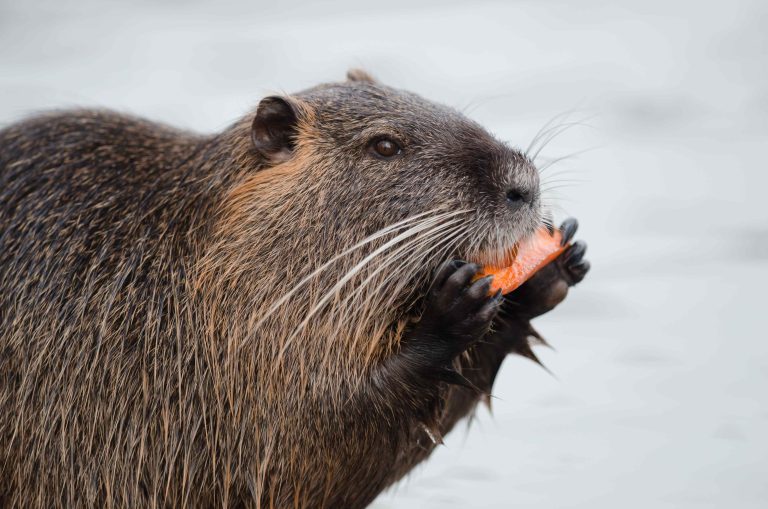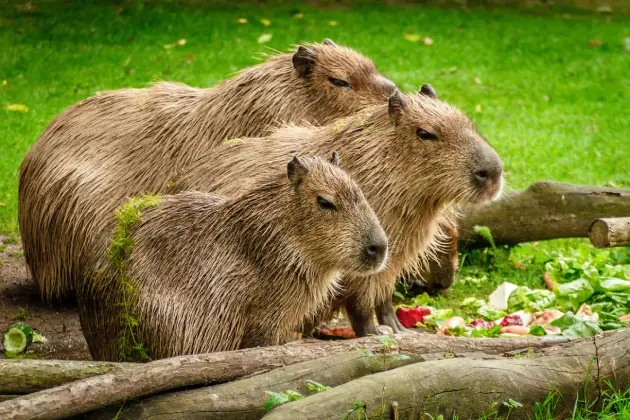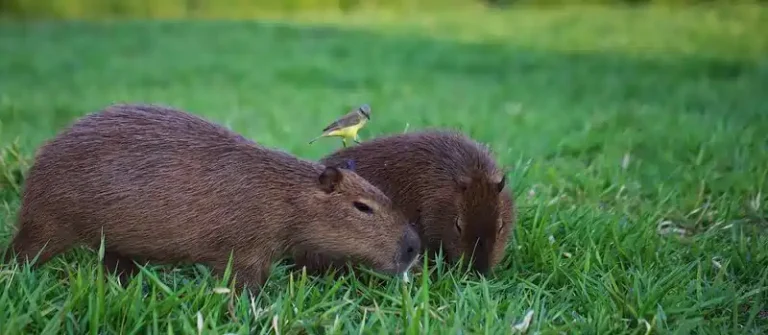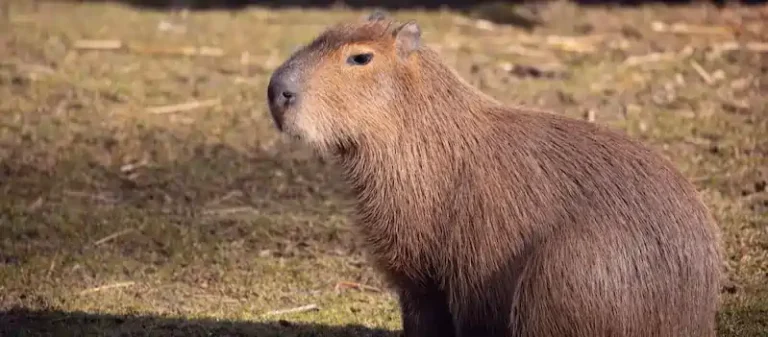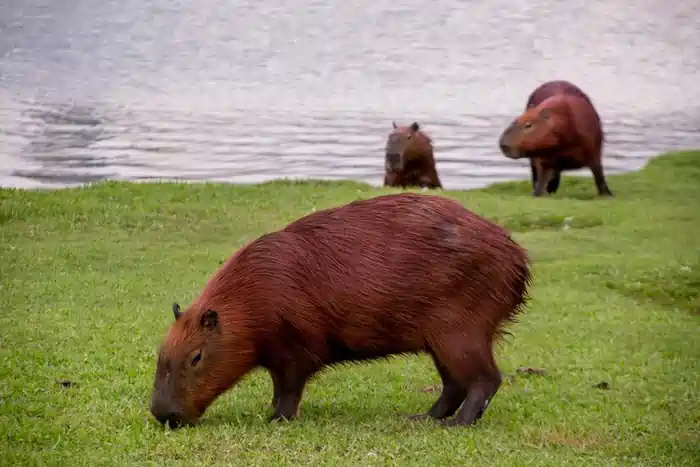
If you’re considering owning a capybara in Colorado, you’re not alone. Capybaras are becoming more popular as pets due to their calm and social nature. These giant rodents, known for their friendly demeanor, make unique companions for those who are up for the responsibility. However, before you start preparing your home for a capybara, it’s crucial to know whether it’s legal to own one in your state. In this article, we’ll explore whether you can legally own a capybara in Colorado and what you need to know about their care.
What Is a Capybara?
Before we dive into the legality of owning a capybara in Colorado, it’s important to understand what a capybara is. Capybaras are the largest rodents in the world, native to South America. They live in groups and enjoy socializing with other animals, including humans. Capybaras are gentle, intelligent, and calm, making them great pets for those who understand their needs. These animals thrive in environments where they can swim and have access to fresh water, as they are semi-aquatic.
Can You Own a Capybara in Colorado?
Now that you know a bit about capybaras, let’s talk about the main question: Can you own a capybara in Colorado? The short answer is no, at least not without the proper permits or licenses. Colorado has strict wildlife regulations, and exotic pets like capybaras are often not permitted as pets in the state.
Capybaras are classified as exotic animals, and in Colorado, there are laws that regulate the ownership of such animals. These laws are put in place to protect both the animals and the public. Capybaras are not listed among the animals that are allowed to be kept as pets in Colorado. While some states do allow capybara ownership with special permits, Colorado does not offer any exceptions for these animals.
Why Are Capybaras Not Legal to Own in Colorado?
The primary reason capybaras are not legal to own in Colorado is due to wildlife protection laws. Many states have regulations that prevent the private ownership of exotic animals like capybaras. These laws exist to protect both the safety of the public and the welfare of the animals themselves.
Exotic animals like capybaras can sometimes be unpredictable, especially in captivity. They require specific care, including a proper diet, space to roam, and social interaction with other animals or humans. Without these conditions, they may become stressed or even aggressive, which could pose a risk to owners and others around them.
In addition, capybaras can carry diseases that may be harmful to humans or other pets. This is another reason why some states choose to restrict or regulate their ownership. Colorado, in particular, has strict wildlife laws designed to protect its residents and the animals that live there.
Alternatives to Owning a Capybara in Colorado
If you’re disappointed to hear that you can’t own a capybara in Colorado, don’t worry. There are plenty of other pets that you can own in the state. Many people choose to adopt more traditional pets like dogs, cats, rabbits, and guinea pigs. However, if you’re looking for something a little more unique, you might consider other exotic pets that are legal in Colorado.
For example, some states allow the ownership of small exotic animals like sugar gliders, hedgehogs, or reptiles. These animals often require less space and can still offer an exciting pet ownership experience. Always make sure to check the laws in your state before bringing home any exotic animal.
What to Know Before Owning a Capybara
Although owning a capybara is not an option in Colorado, it’s still important to understand the responsibility involved in caring for such a unique animal. If you ever find yourself in a state where capybaras are legal to own, here are a few things to consider before bringing one into your home:
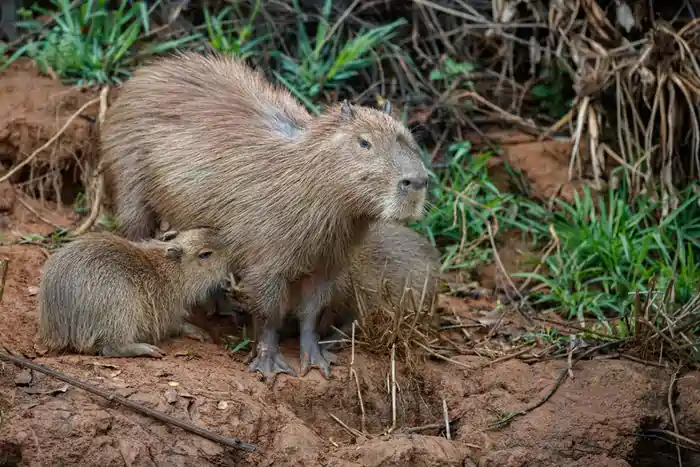
Capybaras Need Plenty of Space
Capybaras are large animals and require a lot of space to roam. If you plan on keeping a capybara, you’ll need a yard or a large enclosure where they can explore. These animals are social and love to be with others, so it’s often recommended to keep more than one capybara. Without enough space to roam, a capybara could become stressed or unhappy.
Capybaras Are Semi-Aquatic
Capybaras are excellent swimmers and require access to water. This means that you’ll need to provide a small pond or a large, shallow pool where your capybara can swim and cool off. Without access to water, your capybara may become agitated or unhealthy.
Regular Vet Check-ups
Like all pets, capybaras require regular vet visits to ensure they remain healthy. You’ll need to find a veterinarian who is experienced in treating exotic animals, as not all vets are familiar with the needs of capybaras. Routine check-ups are essential to catch any potential health issues early.
Capybaras Need Social Interaction
Capybaras are highly social animals and can become lonely or depressed if left alone for long periods. They thrive in groups and benefit from regular social interaction with humans or other animals. If you decide to own a capybara, be prepared to spend a lot of time interacting with them to keep them happy.
Can You Keep a Capybara as a Pet in Other States?
If you’re set on owning a capybara, it’s important to know that laws vary by state. While Colorado doesn’t permit capybara ownership, there are other states where owning a capybara is allowed with the proper permits. For example, in Texas and Pennsylvania, capybaras are legal to own, but you may need a special permit or license.
Before moving forward with adopting a capybara in another state, always research the specific laws and requirements in that area. Capybara ownership isn’t for everyone, and it’s important to ensure that you can provide them with the proper care and living conditions.
Conclusion
In Colorado, owning a capybara as a pet is not allowed due to strict wildlife protection laws. While they may seem like the perfect unique pet, capybaras require specific care and conditions that may be difficult to provide in some areas. However, if you’re passionate about exotic pets, there are still plenty of other animals that are legal to own in Colorado.
Capybara Pet Info aims to provide information to help you make informed decisions about pet ownership. If you’re looking for a new companion, be sure to research your state’s laws and consider adopting a pet that fits your lifestyle.
FAQs
1. Why is it illegal to own a capybara in Colorado?
Capybaras are considered exotic animals, and Colorado has strict wildlife laws that prevent the private ownership of such animals to protect both public safety and animal welfare.
2. Can you own a capybara in any other states?
Yes, some states like Texas and Pennsylvania allow the ownership of capybaras, but you may need special permits or licenses to keep one as a pet.
3. What other exotic pets can you own in Colorado?
While capybaras are not allowed, Colorado permits the ownership of some other exotic pets like reptiles, certain birds, and small mammals. Always check local laws before adopting.







